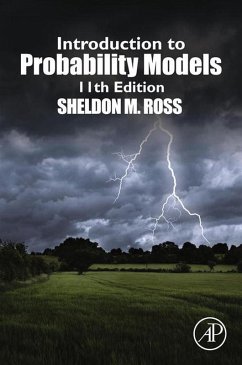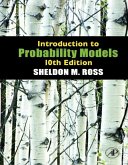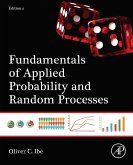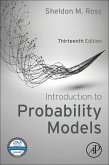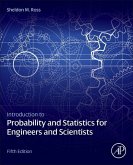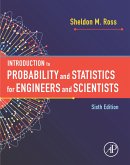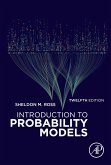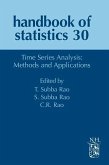Introduction to Probability Models, Eleventh Edition is the latest version of Sheldon Ross's classic bestseller, used extensively by professionals and as the primary text for a first undergraduate course in applied probability. The book introduces the reader to elementary probability theory and stochastic processes, and shows how probability theory can be applied fields such as engineering, computer science, management science, the physical and social sciences, and operations research.
The hallmark features of this text have been retained in this eleventh edition: superior writing style; excellent exercises and examples covering the wide breadth of coverage of probability topic; and real-world applications in engineering, science, business and economics. The 65% new chapter material includes coverage of finite capacity queues, insurance risk models, and Markov chains, as well as updated data. The book contains compulsory material for new Exam 3 of the Society of Actuaries including several sections in the new exams. It also presents new applications of probability models in biology and new material on Point Processes, including the Hawkes process. There is a list of commonly used notations and equations, along with an instructor's solutions manual.
This text will be a helpful resource for professionals and students in actuarial science, engineering, operations research, and other fields in applied probability.
The hallmark features of this text have been retained in this eleventh edition: superior writing style; excellent exercises and examples covering the wide breadth of coverage of probability topic; and real-world applications in engineering, science, business and economics. The 65% new chapter material includes coverage of finite capacity queues, insurance risk models, and Markov chains, as well as updated data. The book contains compulsory material for new Exam 3 of the Society of Actuaries including several sections in the new exams. It also presents new applications of probability models in biology and new material on Point Processes, including the Hawkes process. There is a list of commonly used notations and equations, along with an instructor's solutions manual.
This text will be a helpful resource for professionals and students in actuarial science, engineering, operations research, and other fields in applied probability.
- Updated data, and a list of commonly used notations and equations, instructor's solutions manual
- Offers new applications of probability models in biology and new material on Point Processes, including the Hawkes process
- Introduces elementary probability theory and stochastic processes, and shows how probability theory can be applied in fields such as engineering, computer science, management science, the physical and social sciences, and operations research
- Covers finite capacity queues, insurance risk models, and Markov chains
- Contains compulsory material for new Exam 3 of the Society of Actuaries including several sections in the new exams
- Appropriate for a full year course, this book is written under the assumption that students are familiar with calculus
Dieser Download kann aus rechtlichen Gründen nur mit Rechnungsadresse in A, B, BG, CY, CZ, D, DK, EW, E, FIN, F, GR, HR, H, IRL, I, LT, L, LR, M, NL, PL, P, R, S, SLO, SK ausgeliefert werden.

